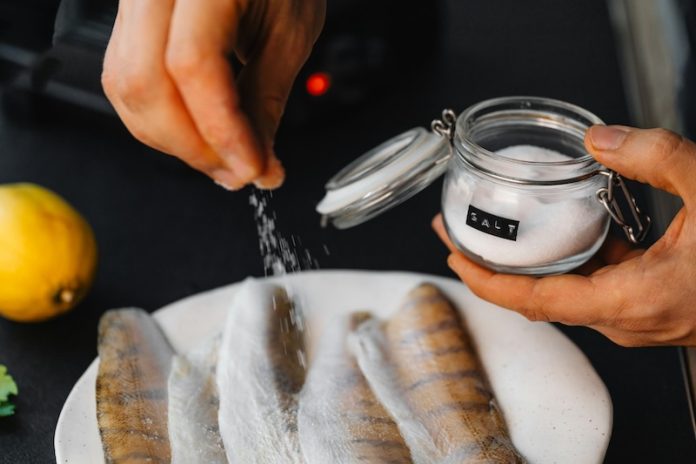
For years, health experts have warned about the dangers of eating too much salt. Too much sodium raises blood pressure, increasing the risk of stroke, heart disease, and early death. But new research suggests that adding more potassium to the diet may be just as important as cutting back on salt.
A recent study, published on February 21 in the Journal of Human Hypertension, shows that potassium plays a major role in controlling blood pressure. The research was based on a large trial called the Salt Substitute and Stroke Study (SSaSS), which followed over 20,000 people for five years.
The study found that switching to potassium-enriched saltled to a 14% lower risk of stroke, a 13% reduction in major heart problems, and a 12% lower risk of early death.
Dr. Liping Huang, the study’s lead author from The George Institute, explained that while scientists have known about the effects of sodium and potassium on blood pressure for a long time, the importance of potassium-enriched salt has only recently gained attention.
“Many people around the world eat too much sodium and not enough potassium. Both of these factors contribute to high blood pressure and increase the risk of serious health problems,” Dr. Huang said.
She explained that replacing some of the sodium in salt with potassium chloride helps solve both issues at the same time. However, until now, scientists were unsure whether the benefits came mainly from reducing sodium or increasing potassium.
To answer this question, researchers analyzed the urine samples of study participants. These measurements provided an accurate picture of how much sodium and potassium people were consuming. The researchers then combined this information with other data on how changes in these minerals affect blood pressure.
Their results showed that between 61% and 88% of the blood pressure reduction came from the increase in potassium, not just the decrease in sodium. This means that potassium is responsible for most of the benefits seen in the study.
Why Is Potassium So Important?
Potassium is an essential nutrient that helps balance fluids, supports heart function, and lowers blood pressure. It is naturally found in many fruits, vegetables, legumes, and nuts. Foods like bananas, kiwis, leafy greens, and beans are rich sources of potassium. However, processed foods, which are common in many diets, often have their potassium removed and replaced with sodium.
The World Health Organization (WHO) recommends that people consume at least 3.5 grams of potassium per day, but the average intake worldwide is only 2.25 grams per day. In fact, a recent study found that only 35% of the global population meets the recommended potassium intake. Meanwhile, sodium intake in most countries is far higher than recommended.
A Simple and Effective Solution
Dr. Huang pointed out that high blood pressure affects 1.3 billion people worldwide, and the number has doubled over the past 30 years. Hypertension is responsible for about 11 million deaths per year, killing 20 people every minute.
One of the biggest challenges in fighting high blood pressure is getting people to change their diets. Many people struggle to eat less salt and more potassium-rich foods. This is where potassium-enriched salt could help.
Unlike other dietary changes, using a salt substitute requires little effort. People don’t have to completely change their eating habits—they just switch to a different kind of salt. Dr. Huang noted that in the SSaSS trial, more than 90% of participants who were given potassium-enriched salt were still using it after five years.
Because of its low cost and ease of use, potassium-enriched salt could bring huge health benefits worldwide. Some experts now believe it should be included in official guidelines for treating high blood pressure.
What This Study Means
This research highlights the power of potassium in controlling blood pressure and preventing serious health problems. While reducing sodium intake remains important, increasing potassium intake could be even more effective.
The findings suggest that millions of lives could be saved by making potassium-enriched salt widely available. Since most people struggle to change their diets, this simple switch could be one of the easiest and most affordable ways to reduce high blood pressure worldwide.
If you care about high blood pressure, please read studies about unhealthy habits that may increase high blood pressure risk, and drinking green tea could help lower blood pressure.
For more information about high blood pressure, please see recent studies about what to eat or to avoid for high blood pressure, and 12 foods that lower blood pressure.
The research findings can be found in the Journal of Human Hypertension.
Copyright © 2025 Knowridge Science Report. All rights reserved.



